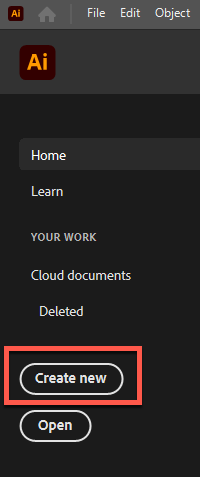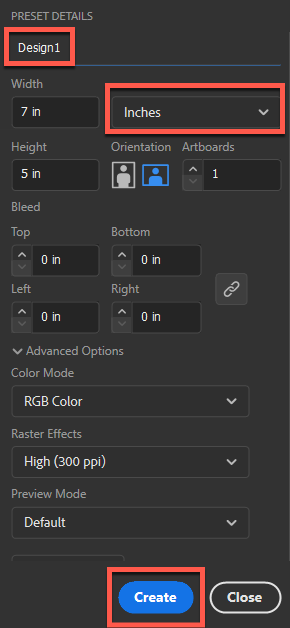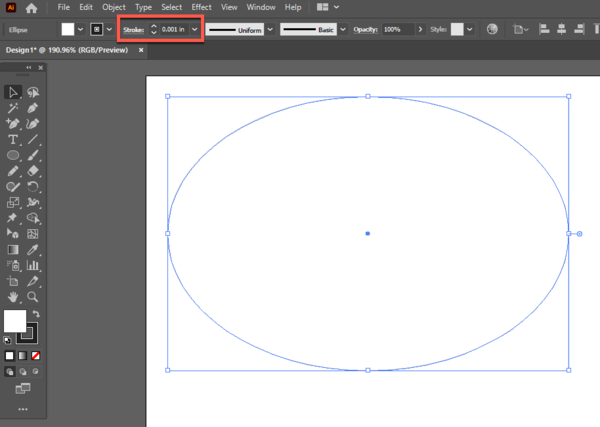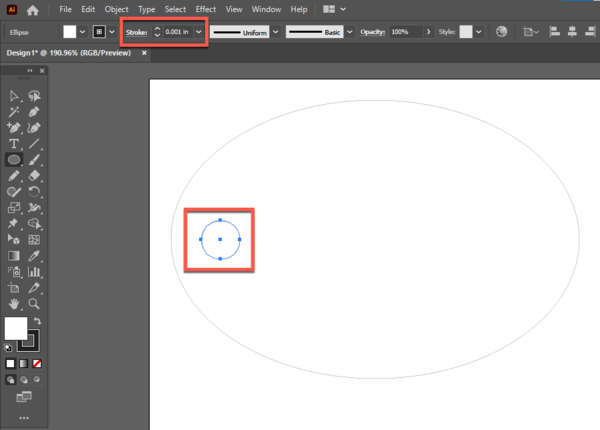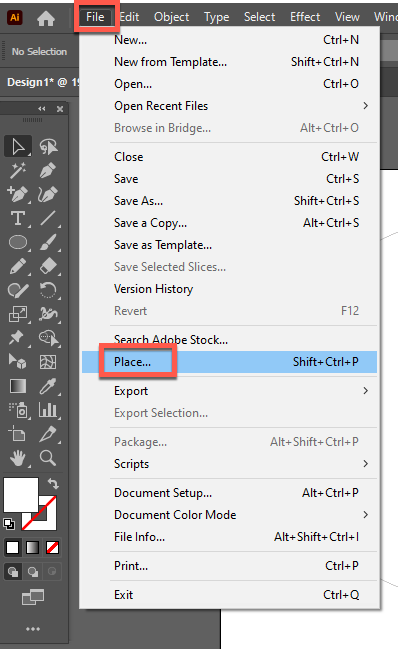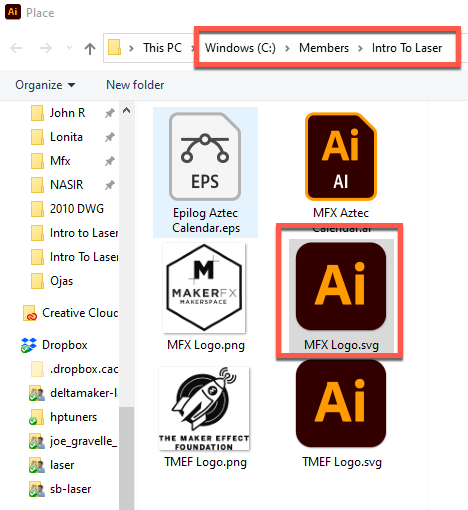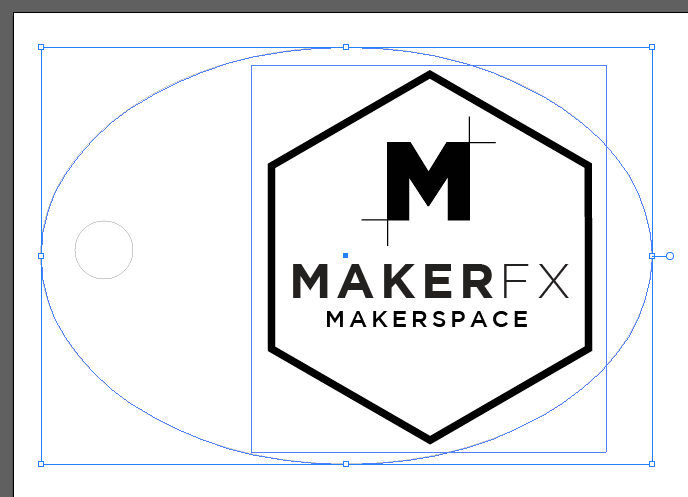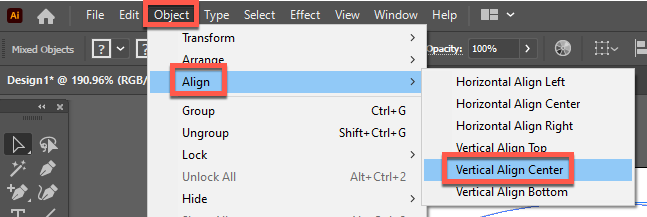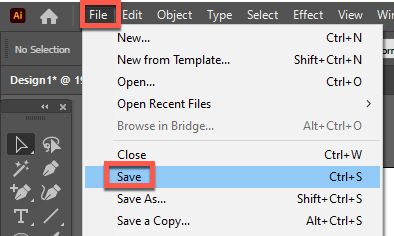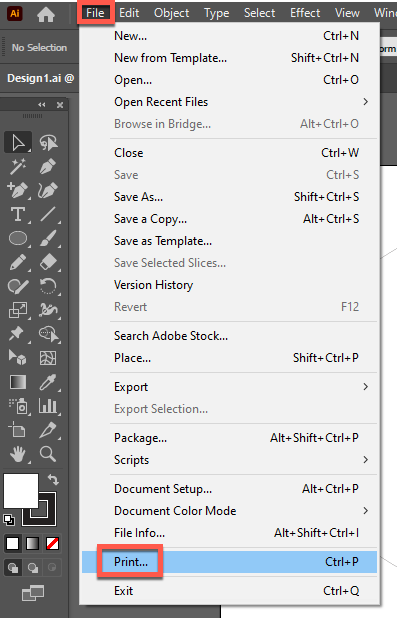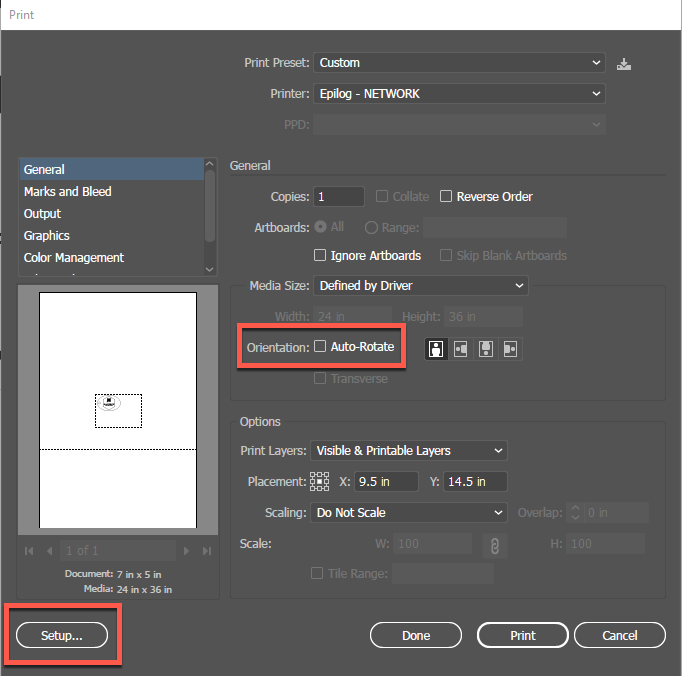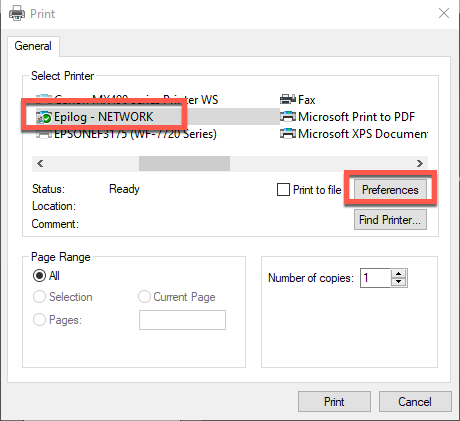Difference between revisions of "Epilog Laser 101"
| Line 19: | Line 19: | ||
#This step involve using a variety of toolbars within Illustrator. The main toolbar is usually docked on the left and is called the Advanced Toolbar. | #This step involve using a variety of toolbars within Illustrator. The main toolbar is usually docked on the left and is called the Advanced Toolbar. | ||
#:[[File:Laser 101.03 Adobe Advanced Toolbar.png]] | #:[[File:Laser 101.03 Adobe Advanced Toolbar.png]] | ||
| − | + | #We are making a large keychain tag. Select the Ellipse tool on the Advanced toolbar | |
| − | #We are making a large keychain tag. | ||
| − | |||
#:[[File:Laser 101.04 Select Ellipse Tool.png]] | #:[[File:Laser 101.04 Select Ellipse Tool.png]] | ||
| − | |||
#Use the mouse and draw out an ellipse as shown below | #Use the mouse and draw out an ellipse as shown below | ||
| + | #Select the ellipse and then set the Stroke width to 0.001 inches. You will see the Stroke width highlighted in the red box below. | ||
#:[[File:Laser 101.05 Draw Ellipse.png|600px]] | #:[[File:Laser 101.05 Draw Ellipse.png|600px]] | ||
| − | |||
#Illustrator does not have a dedicated circle option. You use the Ellipse tool and just hold the SHIFT KEY to draw a circle. | #Illustrator does not have a dedicated circle option. You use the Ellipse tool and just hold the SHIFT KEY to draw a circle. | ||
#Draw a small circle on the left side of the ellipse. | #Draw a small circle on the left side of the ellipse. | ||
#:[[File:Laser 101.06 Draw Small Circle.png|600px]] | #:[[File:Laser 101.06 Draw Small Circle.png|600px]] | ||
| − | + | #The next step involves placing an image on our keytag. In this example we are placing a SVG file but the same process can be used for placing other types of files such as JPG, PNG or DXF files. | |
#:[[File:Laser 101.07 File - Place.png]] | #:[[File:Laser 101.07 File - Place.png]] | ||
| − | + | #Navigate to the '''Members folder''' in the root of the C drive. Navigate into the '''Intro To Laser''' folder and select the MakerFX Logo. | |
| + | #Hold SHIFT KEY and then drag a handle of the image to get it to the desired size. | ||
| + | Don't worry about aligning the image vertically or horizontally. We will fix that next. | ||
#:[[File:Laser 101.08 File - Place - Locate.png]] | #:[[File:Laser 101.08 File - Place - Locate.png]] | ||
| − | |||
#:[[File:Laser 101.09 Align Select Objects.png]] | #:[[File:Laser 101.09 Align Select Objects.png]] | ||
| − | |||
#:[[File:Laser 101.10 Align Horizontal Center.png]] | #:[[File:Laser 101.10 Align Horizontal Center.png]] | ||
| − | |||
#:[[File:Laser 101.11 Align Vertical Center.png]] | #:[[File:Laser 101.11 Align Vertical Center.png]] | ||
| − | |||
#:[[File:Laser 101.12 File - Save.png]] | #:[[File:Laser 101.12 File - Save.png]] | ||
Revision as of 14:02, 21 February 2021
This page details the basis of how to create a design via Illustrator and "print" the job to the Epilog laser.
Creating a new Illustrator Artboard
This step is very straight forward and is like creating a new file in any software program you might be familiar with. The critical part of this step is properly setting the dimensions of the material you will place in the laser. NOTE: Failing to properly set the dimensions of your material could result in the laser cutting or etching outside of the intended area.
- On the right under Preset Details, you need to enter the details of the material you'll be using. The image below shows the most important settings:
- ITEM 1: Name of your design. IE: Design1
- ITEM 2: Unit of measure. IE: Inches
- ITEM 3: Width and Height of your material. IE: 7 inches width and 5 inches height.
- When you are done setting up your job, click the Create button. The Job Setup panel will close and you will be shown a blank Illustrator design screen which is called an Artboard.
Creating your design
- This step involve using a variety of toolbars within Illustrator. The main toolbar is usually docked on the left and is called the Advanced Toolbar.
- We are making a large keychain tag. Select the Ellipse tool on the Advanced toolbar
- Use the mouse and draw out an ellipse as shown below
- Select the ellipse and then set the Stroke width to 0.001 inches. You will see the Stroke width highlighted in the red box below.
- Illustrator does not have a dedicated circle option. You use the Ellipse tool and just hold the SHIFT KEY to draw a circle.
- Draw a small circle on the left side of the ellipse.
- The next step involves placing an image on our keytag. In this example we are placing a SVG file but the same process can be used for placing other types of files such as JPG, PNG or DXF files.
- Navigate to the Members folder in the root of the C drive. Navigate into the Intro To Laser folder and select the MakerFX Logo.
- Hold SHIFT KEY and then drag a handle of the image to get it to the desired size.
Don't worry about aligning the image vertically or horizontally. We will fix that next.
Configure Design for Laser
The Epilog laser is connected to the MFX network much like a traditional laser printer. You will be using various print dialogs to configure how the laser will operate for the specific material you are using.
